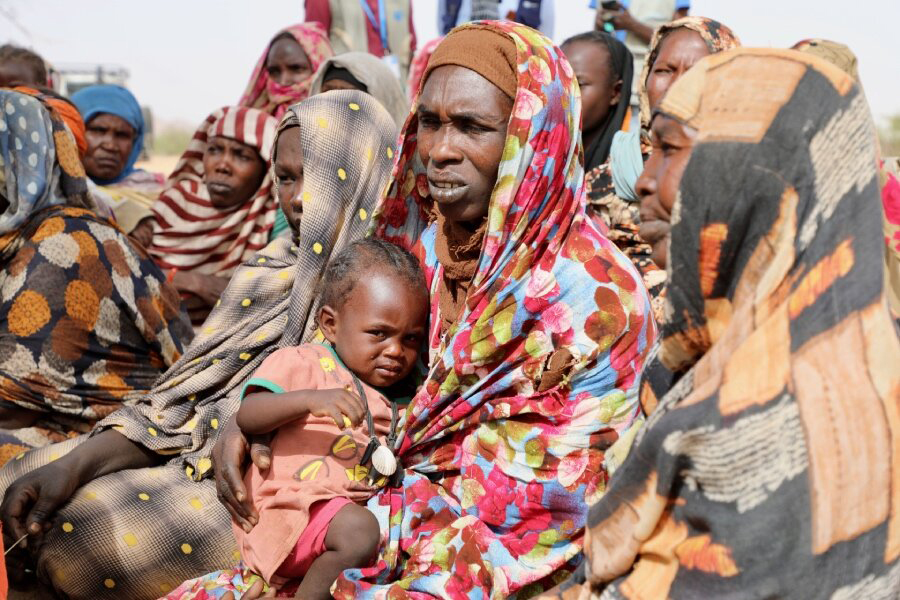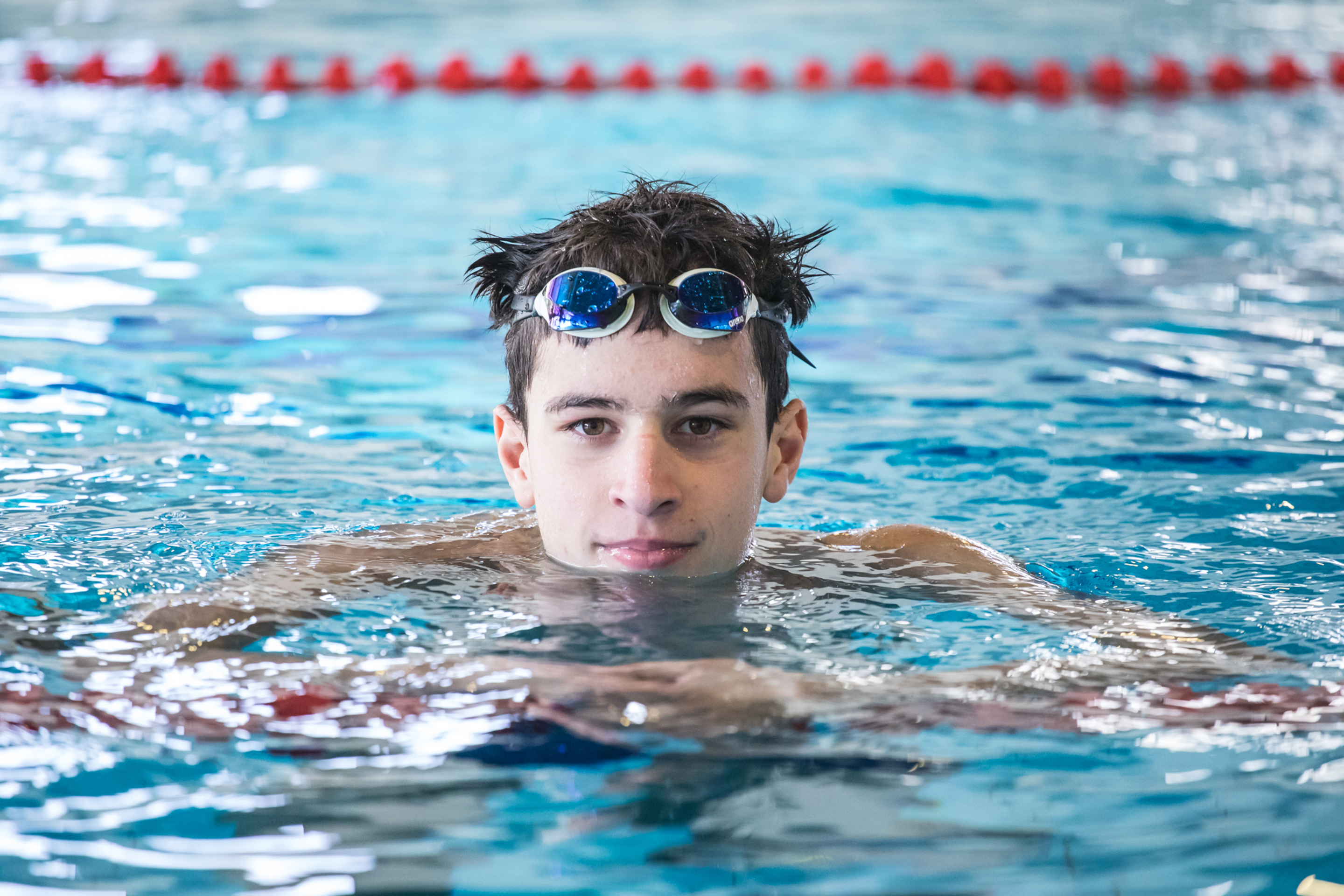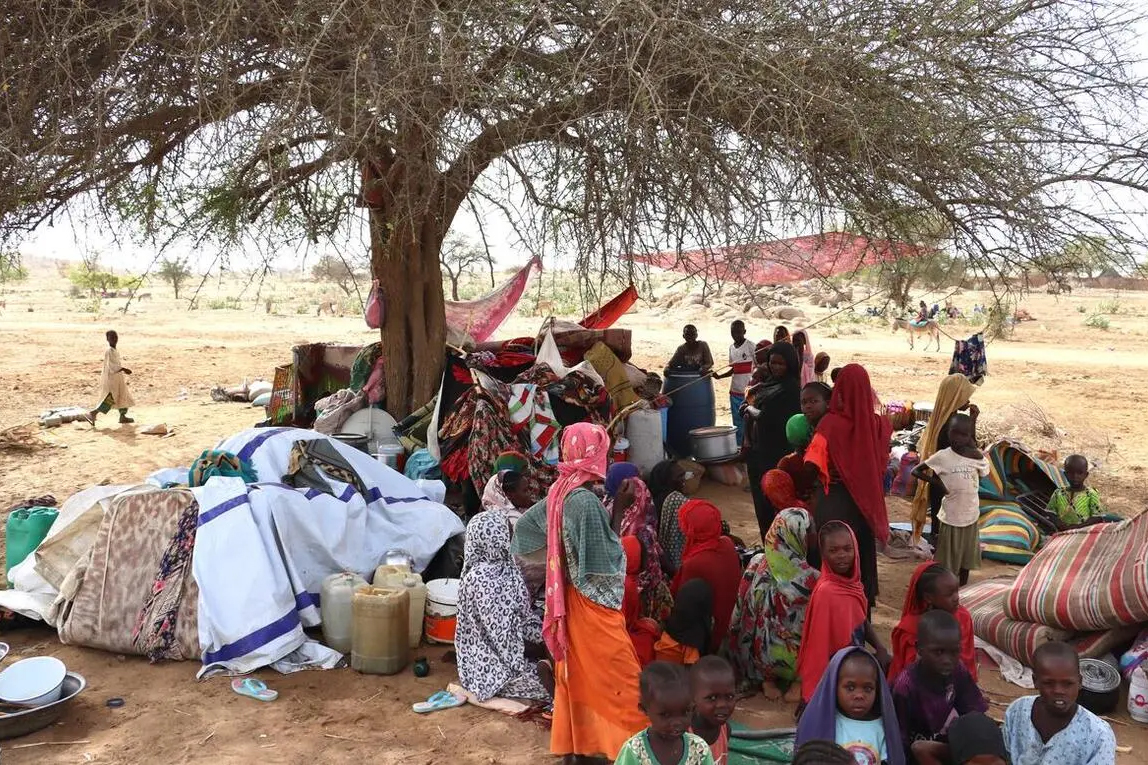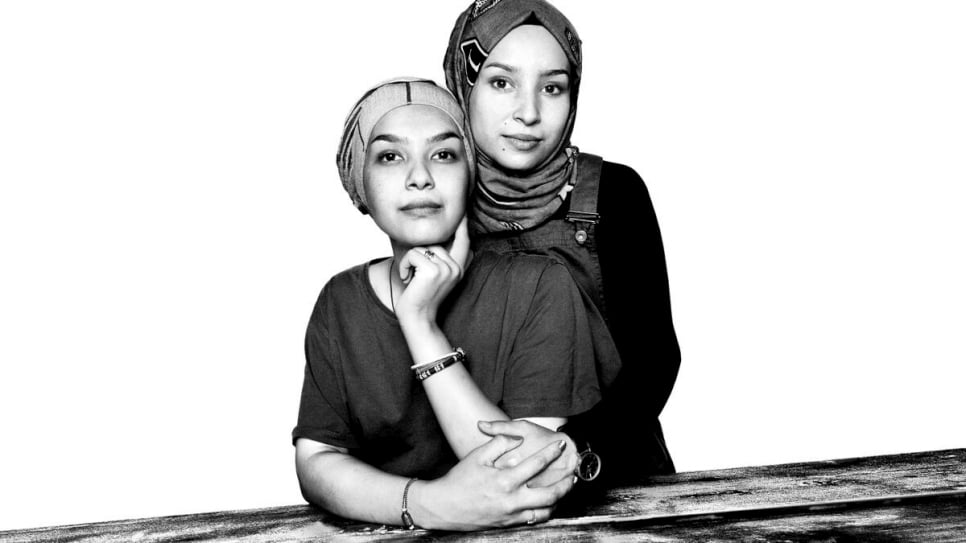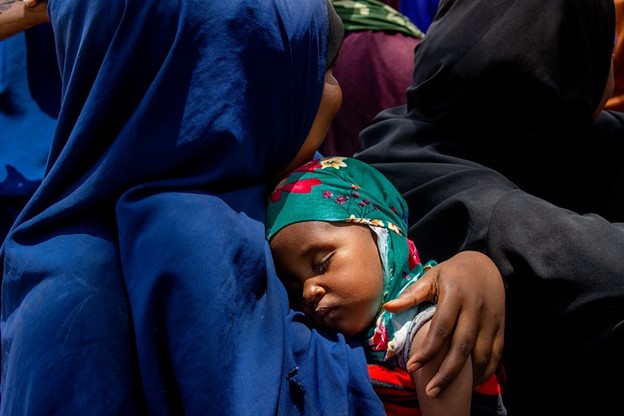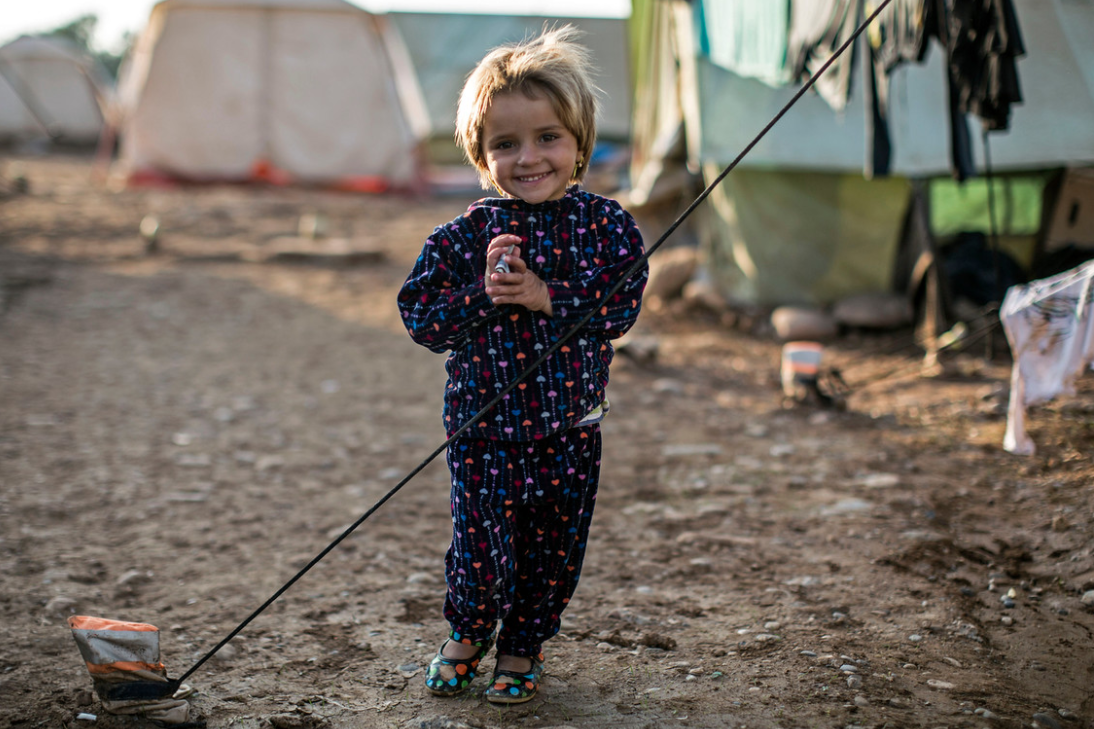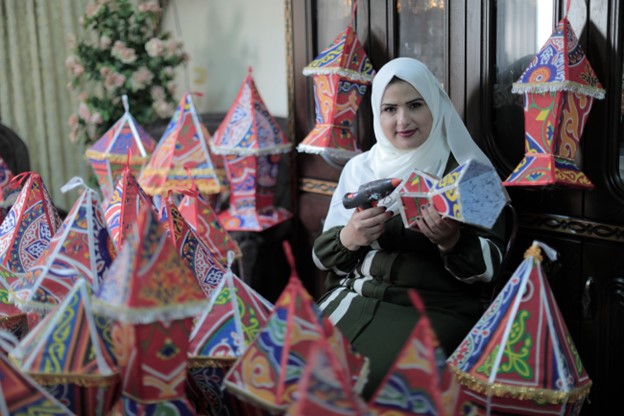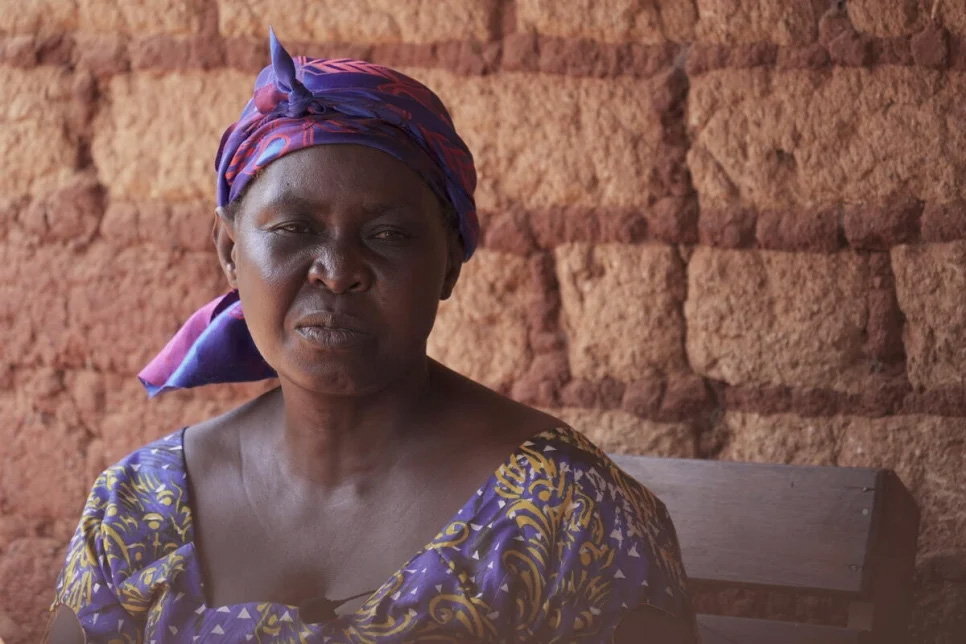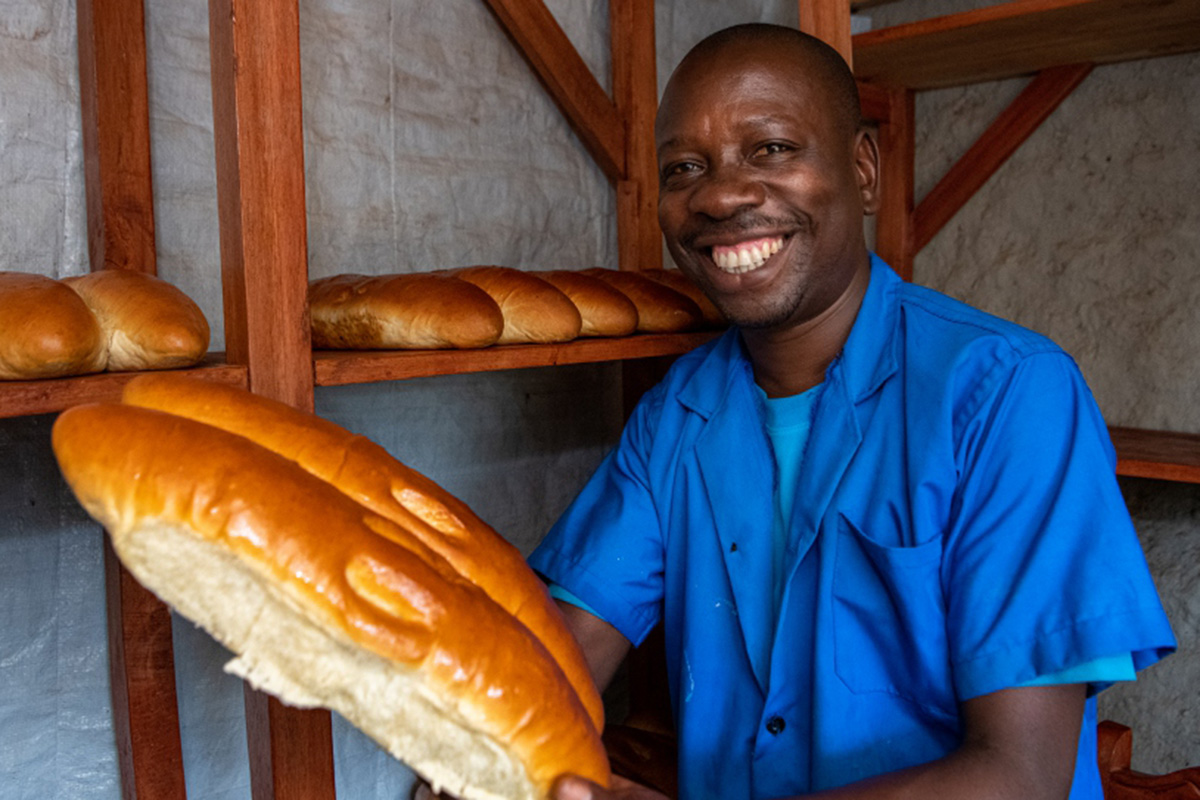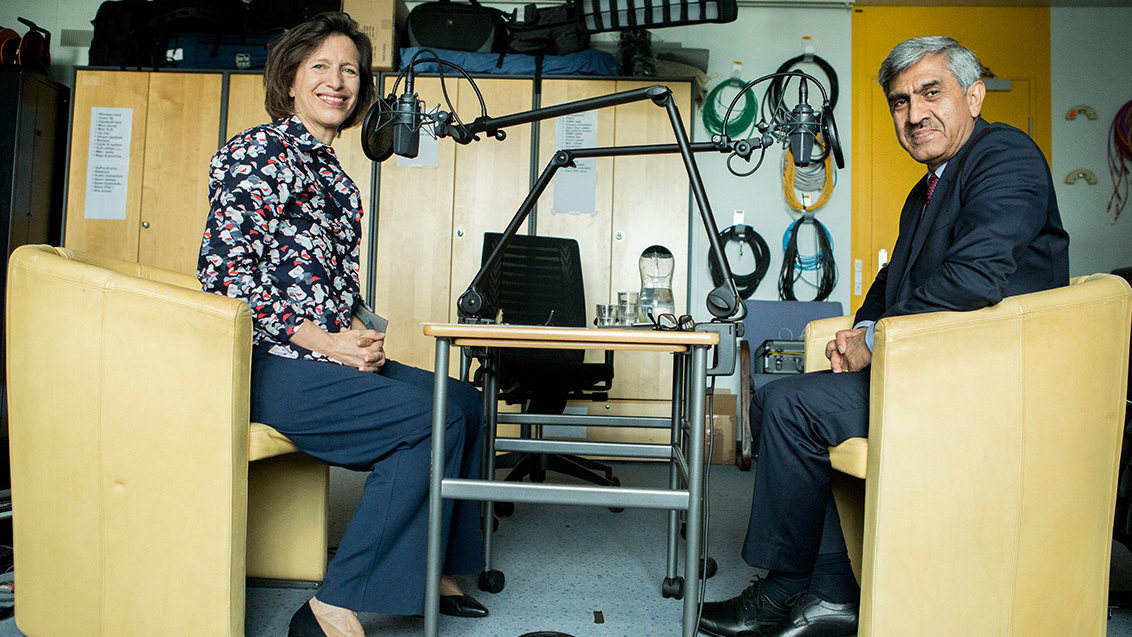When the fighters came to her Sudanese village, 50-year-old Aicha Madar fled with her daughter Fatima, joining thousands streaming across the border into eastern Chad. Tens of thousands of Sudanese refugees have escaped the recent uptick of violence in their homeland – numbers that could swell to 270,000 or more. Most are heading to South Sudan and to Chad, countries already grappling with some of the world’s highest hunger levels. WFP and other humanitarians fear a perfect storm, as refugee influx from Sudan’s unrest is compounded by upcoming rains, lean season and a funding crunch.
Sasha, a passionate swimmer, had been training for nine years preparing for the Olympics, until he was derailed by the war in Ukraine. IOM has helped Sasha and his family on the journey to Budapest.
UNHCR is scaling up to assist people seeking safety in countries neighbouring Sudan, where the fighting looks set to trigger further displacement both within and outside the country. So far, the most significant cross-border movements in the region have been Sudanese fleeing to Chad, and South Sudanese refugees returning to South Sudan. While we have also received reports of people starting to arrive in Egypt, exact numbers are not available at this point. UNHCR is working closely with partners and governments in the region to assess the needs of the newly arrived towards a joint response.
Portrait of a Stranger, a creative multimedia collaboration between world-renowned photographer and storyteller Platon and UNHCR debuts in partnership with a human rights film festival in The Hague.
Millions of children are experiencing a surge of preventable diseases because of prolonged drought and conflict in Somalia. Women and children make up more than 80 per cent of the displaced people in Somalia, and they are most affected. by the limited access to and unavailability of water, sanitation and hygiene services and increased risk of waterborne diseases. But only 27 per cent of Somalia’s population have access to essential health care. UNOCHA and its humanitarian partners are noting that the number of IDPs continues to increase due to ongoing conflict, drought-induced displacement and water shortages.
More people are currently displaced within their own countries than ever recorded before due to conflict, violence, disasters and the impact of climate change. The number of internally displaced persons (IDPs) has doubled over the last ten years, with women, children and marginalized groups often facing the greatest impacts. Millions of people have remained trapped in displacement for years, some even for decades. The UN Secretary-General’s Action Agenda on Internal Displacement sets out steps to better resolve, prevent, and address internal displacement crises.
Ola Abu Saleem, has turned her passion for hand-made art into a source of income for her family, by creating beautiful Ramadan decorations and lanterns. Amid their daily struggles, many Palestine refugees in Gaza are finding ways to generate income and share the joy of the month with their communities. UNRWA is participating in the holy month of Ramadhan through its teachers and training centers by building a sense of community and belonging in among the refugees. At the heart of Ramadan is the concept of charity and giving back to those in need. The practice of zakat, the giving of a portion of one's wealth to those in need, takes on a special significance during this time.
Rouah Abuzamazem works with the Migrant Resource and Response Mechanism Unit in IOM Libya. IOM assists rescued migrants with health assistance, psychosocial support and humanitarian direct assistance such as provision of hygiene kits and clothes. By working closely with the Libyan authorities, particularly with the detention centre management, IOM is also working to enhance living conditions for detained migrants through rehabilitation of the detention centre facilities, human rights training of staff, health assistance, psychosocial support and humanitarian direct assistance.
Like so many forced by conflict to flee their homes, Clarisse Nina Renessio dreams of returning. Now, five years after fighting first reached her village in the Central African Republic, that dream is close to becoming a reality. Last year the UN Refugee Agency, facilitated the return of 800 people from PK3, a camp for displaced people outside the city of Bria where 33,000 people live. This initial relocation, mostly to previously unsafe neighbourhoods of the city, came after repeated surveys showed that most households at PK3 wished to return to their original homes.
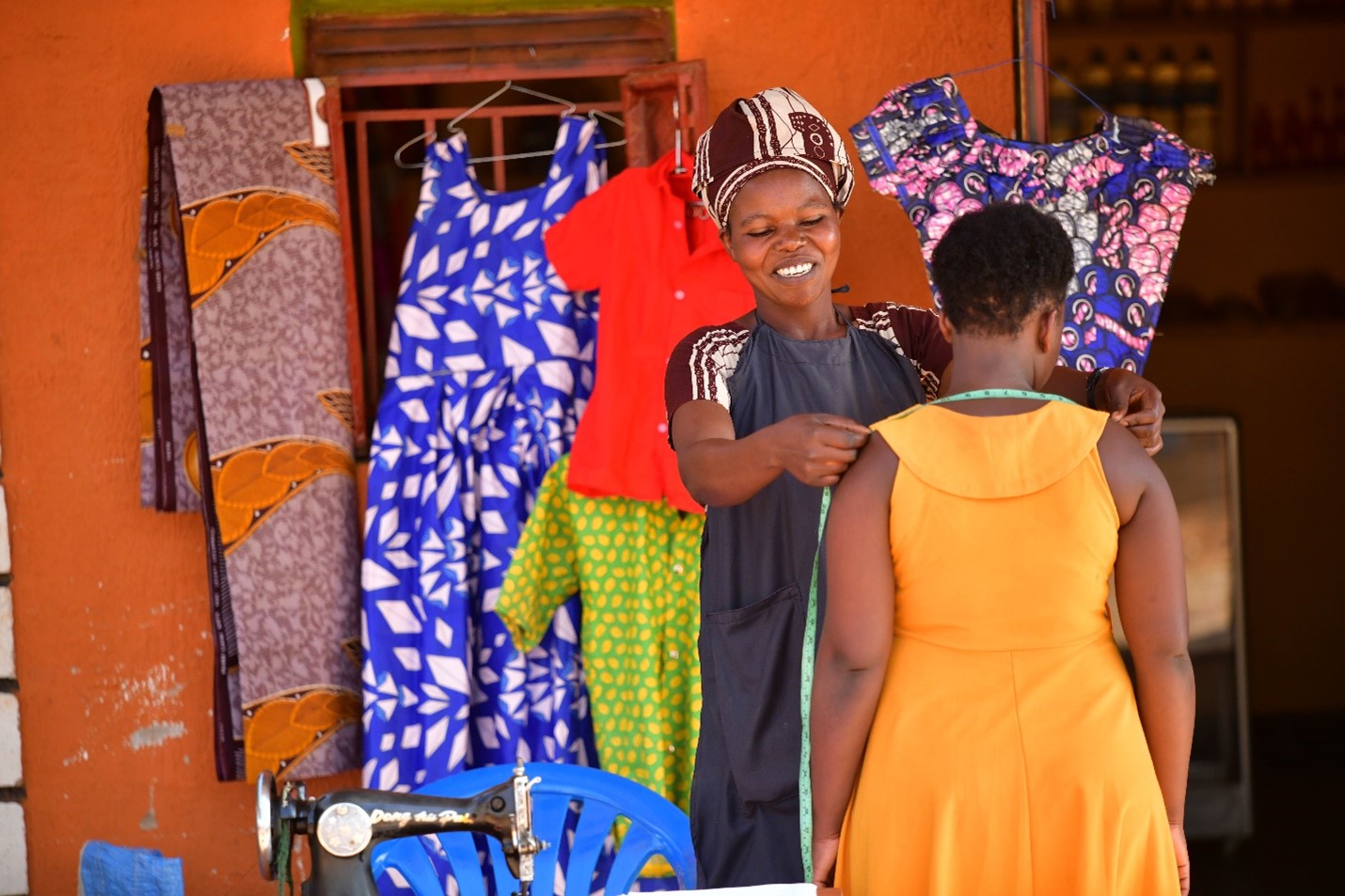
My new skills have given my family hope
Fleeing Congo’s civil war, widowed Angelique Kahindo, trekked her way through the treacherous Congo jungles with her children until she reached Nakivake refugee settlement in southern Uganda. Through ILO PROSPECTS, she was shortlisted for a six month apprenticeship, where she learned and perfected her tailoring skills. The world is witnessing the highest levels of displacement ever recorded. In recent years, forced displacement has increased not only in scale but also in complexity. PROSPECTS, spearheaded by the Government of Netherlands in partnerships with several international bodies, was initiated to improve the access of host communities and forcibly displaced people to employment and livelihood opportunities.
From supporting themselves on their farm in Namande village in Mozambique, Ali’s family had no choice but to leave everything behind when insurgents attacked their village. Ali, his wife Florinda and their five children are among the more than one million people who have been displaced from their homes, and who are now relying on support from FAO and its partners to help them restart their livelihoods. Local authorities in the neighbouring Montepuez district soon allocated Ali and his family a 0.5-hectare plot of land to farm and FAO provided a farming kit to get back to prodcution.
Shebulike and his family fled the violence in the east of the Democratic Republic of the Congo after surviving two attacks by armed men invading their home. A few months after arriving in Burundi, Shebulike realized that he needed to provide for his wife and seven children and keep himself busy, so he fell back on his profession as a baker. “Rather than sit idle and depend entirely on the help we receive from the UN Refugee Agency and other humanitarian organizations, I found it useful to roll my sleeves up and get to work on the thing I know best.”
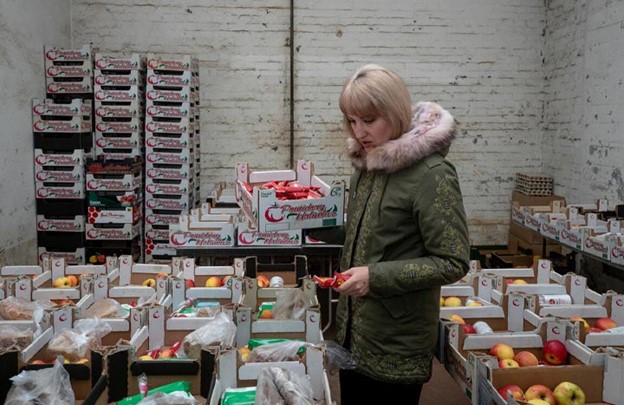
Contributing to host-country economies
Ludmila arrived in Wroclaw from Ukraine shortly after the outbreak of the war, and now works in an NGO supporting Ukranian refugess in Poland. UNFPA highlights that accepting refugees is not only the right thing to do, but it also provides significant economic benefits to the host country. The countries that welcome refugees from conflict-affected areas, recognizing their right to reach safety and access opportunity, find that many have valuable skills and make important contributions to their new homes.
Amal Abu Snan from Gaza, received a loan from UNRWA and was able to purchase a sewing machine and some materials to start work as a seamstress. Twenty years later, she has made a name for herself creating quality dresses and embroidered gowns, and is well-respected for her craftsmanship. Today, she is keen to pass on her skills to the next generation.
"There are certain images that will stay with me for a very long time. Because those are the images that cannot be forgotten overnight." Sajjad Malik witnessed terrible suffering during the Syrian crisis. As UNHCR’s former representative in the country, he oversaw one of the UN Refugee Agency’s toughest and most dangerous operations.
Since the war in Syria started in 2011 more than 5.7 million people have fled the country. Another 6.9 million are internally displaced. In this special bitesize episode, Sajjad Malik reflected on the catastrophic conditions he witnessed there and the lasting impact of those memories.
"You have to maintain your mental strength and courage. It’s fine to say it and reflect and cry if need be."

